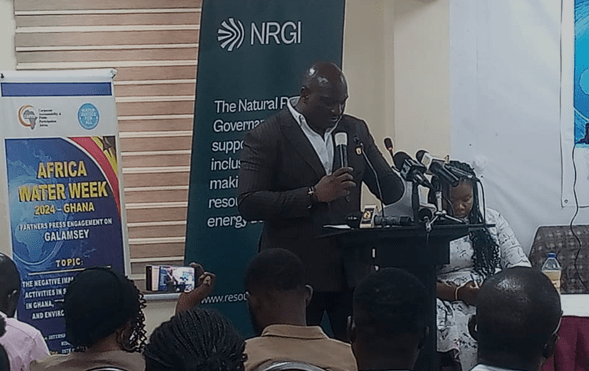The Water Citizens Network and Revenue Mobilisation Africa have called for action against the devastating impact of illegal mining and corporate exploitation on Ghana’s environment and communities.
Marking the Week Against Water Privatisation, the two organizations condemned the environmental degradation caused by illegal mining, known locally as “galamsey,” as well as the broader impact of neoliberal economic policies.
The groups decried the severe environmental toll, particularly on Ghana’s rivers, with once-thriving water bodies such as the Pra, Ankobra, and Birim now contaminated by chemicals like mercury and cyanide.
“Our natural resources are under siege, and communities are paying a steep price,” stated Leonard Shan Quartey, Coordinator at Africa Water Justice Network, lamenting the pollution of rivers essential for drinking, irrigation, and fishing.
Illegal mining, according to the groups, is exacerbated by mass youth unemployment, forcing young Ghanaians into dangerous mining activities with few alternative job opportunities. This situation, they argued, is a consequence of neoliberal policies that prioritize foreign investment and resource extraction at the expense of local development.
“It is a cycle of exploitation driven by both multinational corporations and powerful local interests,” Mr. Quartey added.
Mr. Quartey also criticized the government’s approach of criminalizing galamsey operators, calling it a “misguided solution.” He urged the government to shift focus from penalizing small-scale miners to addressing the underlying structural issues, such as poverty and lack of economic alternatives.
“Many engaged in galamsey are driven by necessity, not greed,” he said, highlighting the exploitation of these workers by syndicates and investors who profit from their labor.
The groups proposed a range of reforms to combat the crisis, including stronger environmental protections, investment in alternative livelihoods, and policies to prevent capital flight. They also called for community-based resource management to ensure local stakeholders are involved in decisions regarding natural resources.










